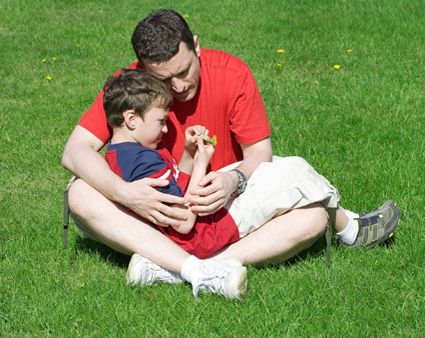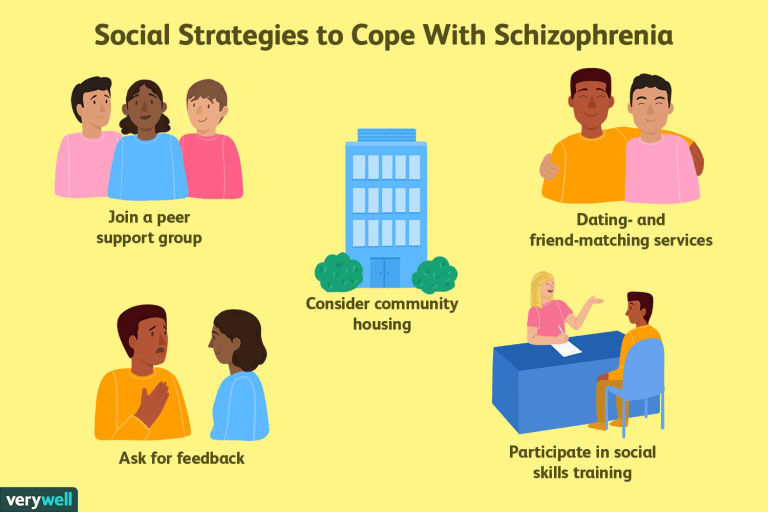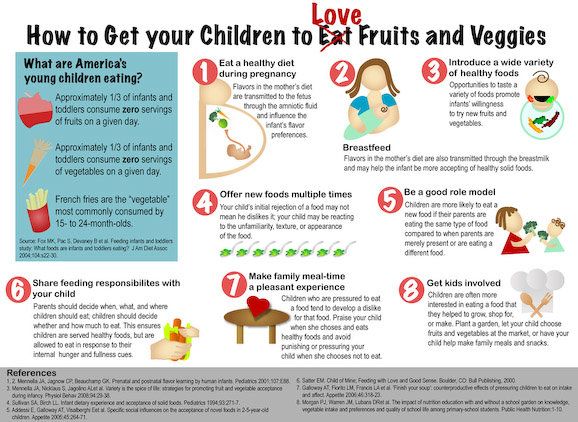How to deal with a naughty child
10 Effective Tips to Deal With a Naughty Child
As parents, your tolerance level will be tested if you have a ‘naughty’ child. If your child runs around and screams or cries or shouts at the top of his lungs if his demands are not fulfilled, you’re likely to lose your cool and scold him. You may also wonder what you did wrong that resulted in such behaviour of your child. But there is no need to worry or lose patience. Once you understand where this naughty behaviour comes from and stop blaming yourself, you can address the issue in a far more constructive and compassionate manner. Let’s look at how you can deal with your naughty child.
Video: 8 Effective Tips to Deal With a Naughty Child
Common Causes of Naughty Behaviour in a Child
Mentioned below are a few causes of naughty behaviour in a child:
1.
In our frustration, we often forget that young children’s brains are still developing. Skills like self-regulation develop in children after careful and consistent efforts by the parents. So if your child doesn’t listen to your warning and throws tantrums or disobeys you, it may be because the area of his brain which is involved with self-control isn’t fully developed yet. Patience and consistent efforts is required from your side.
2. Physical Effects
Hunger, thirst, sleep deprivation, or sickness can affect even adults in many ways and make them irritable. And for kids, these effects are double-fold. So if they are tired or hungry or have too much sugar, they tend to be more active and act out as a consequence.
3. Too Much, Too Fast
It is vital to keep your child’s body and mind active, but this has to be balanced with proper rest, too. Sometimes when your kid feels stressed due to the over-stimulation (it could be because of socialising or physical activity), his behaviour may change. He may throw tantrums or be hyperactive. When kids have a good balance of activity and rest in their lives, this behaviour will lessen.
He may throw tantrums or be hyperactive. When kids have a good balance of activity and rest in their lives, this behaviour will lessen.
4. Need for Independence
As parents, you may want your child to be independent, but you may get annoyed when your child actually strives to do things alone. So when your toddler is stubborn about choosing his own outfit and ends up going to school wearing something outlandish, try and be patient. Understand that no matter how silly or wrong the decision seems, he is just learning to be independent.
5. Overwhelming Emotions
Powerful emotions like fear, sadness, or frustration can take a toll on children, as they are not used to them and don’t have developed mechanisms for coping with such emotions at a young age. So when children are overwhelmed, they may throw temper tantrums, shout, cry, or be difficult. These are the ways how children express their feelings. If your child throws a fit or shouts or cries, you must support him during this time and teach him how to deal with his emotions. Do not shout at your child in such situations, talk in a gentle and even tone.
Do not shout at your child in such situations, talk in a gentle and even tone.
6. The Need to Burn Off Their Energy
Kids often have a lot of energy they need to burn off. They constantly need physical activity like riding bikes, running or playing outside. So if your child is fidgeting and is active at a time when he is supposed to be doing sleeping or taking a nap, this is a sign that he needs to burn off some energy.
7. Inconsistency
Every family has certain ground rules for kids that they are expected to adhere to. If your child has no rules to follow or if you are lenient with the rules you have set for your child, your child may get frustrated and act naughtily. So be consistent when setting rules and expectations for your child. He will respond and behave better when he knows what is expected of him.
8. Your Mood
Human beings generally are affected by the moods of people around them. So, if you display negative or angry behaviour towards your child, he may mirror the same behaviour. If you are calm and patient around them, he will display the same around you.
If you are calm and patient around them, he will display the same around you.
9. Love for Play
If your kid plays pranks like hiding your shoes before you go out or hiding the car keys, it is because he has an inherent love for playing, especially with parents. It’s a sign of attention-seeking behaviour and you must understand that your child wants you to spend time with him.
10. Different Characteristics
Everyone has different qualities, strengths, and weaknesses. Some people are motivated and focused while others are compassionate. It is the same with kids, and that might influence their behaviour. It is important to know their strengths when dealing with their naughty behaviour.
How a Child’s Naughtiness Affects Parents
Parents may find it incredibly frustrating to manage a child’s naughty behaviour. But sometimes it is the behaviour of the parents themselves that bring about a child’s naughty behaviour. A child’s naughtiness can make a parent feel:
- Annoyed
- Helpless
- Worn out
- Frightened
- Sympathetic
How to Deal With a Naughty Child
There are a few simple guidelines for you to help you handle your naughty child. Here are a few tips for dealing with naughty kids:
Here are a few tips for dealing with naughty kids:
1. Fix Limits
Don’t accept everything your child says. Set limits and don’t put the responsibility of deciding what he needs and doesn’t need entirely on him. Be firm but gentle if he throws tantrums, then tell him that he won’t just get what he wants with such behaviour.
2. Be Consistent
Don’t treat your children differently every day. If one day you are firm with your child and lenient the next day, he won’t take you seriously. For instance, if one day you don’t allow him to watch TV for long, and the next day you let him watch all he wants just because you are busy and want him to keep quiet, it will send out a mixed message to your child. So be consistent in setting and following rules.
3. Give Your Child Some Independence
Don’t dictate every last thing what your child should do. Give him little independence with regards to choosing his own clothes or deciding how he would like to drink milk.
4. Limit Screen Time
Watching cartoons constantly without any limitation can increase agitation in children, making them over-excited and prone to naughty behaviour. So set limits on how long your child can watch TV or play games on the computer.
5. Define Consequences
Let your child know about the consequences of his naughty behaviour. He needs to know that he will get into trouble if he throws tantrums or shouts for no reason. Tell him that this kind of behaviour is unacceptable.
6. Stand Strong in the Face of a Tantrum
If your child has been crying continuously for long, you may be tempted to give in to his demands. But don’t fulfil his demands every time he cries or throws a fit, as it will only spoil him in the long run. He will think that by crying or shouting he can get anything, so learn to ignore his cries. He will stop crying on his own.
7. Pay Attention
Sometimes children display naughty behaviour because they want their parents’ attention. Learn to listen to your child calmly, ask him why he is acting that way and what can you do to make it stop. Your child will respond well to your considerate behaviour.
Learn to listen to your child calmly, ask him why he is acting that way and what can you do to make it stop. Your child will respond well to your considerate behaviour.
8. Don’t Scream
Don’t lose your temper and shout back at your child, this is counter-productive as it will make him stop his tantrum for the time being, but he will also learn to mimic you in the future.
9. Don’t Take Out Your Anger on Your Child
When you are in a bad mood, and your child is not behaving properly, don’t take out your negative emotions on him. If you shout at your child when he is not at fault, he will get angry at you and may misbehave. Stay calm and handle the situation with patience. Children are impressionable; your calm behaviour will be noted by your child and he will learn to stay calm in moments of anger by merely observing you.
10. Set a Regular Routine
When your child has holidays from school, set a regular timetable for him. That will set laws to live by, and your child won’t feel compelled to misbehave as he will have a solid routine to follow. Set a fixed sleeping and eating routine too.
Set a fixed sleeping and eating routine too.
Your own behaviour will be a mirror to your child’s behaviour, so make sure your behaviour is ideal for him to follow. Do not be too strict on him as this will make him naughty and nervous as he will not understand your feelings and your expectations of him. Being clear and transparent with your child will go a long way in making sure that he doesn’t act naughty all the time. Cherish, love and respect your child and he will respond in kind.
Also Read: Common Parenting Issues Faced and Their Solutions
Dealing with kids' difficult behaviour
Go backExplore this article's topics:
Behaviour Tantrums and strops
Being a parent can be wonderful one minute – but draining and frustrating the next. Whether the kids are fighting over their toys, crying their heart out because they can’t wear pyjamas to school, or having huffs and puffs over homework, it can sometimes be a struggle to keep your cool.
We all have moments when our kids press our buttons – we all know losing your temper and reacting angrily doesn’t help, so what can we do? Check out our top tips for dealing with difficult behaviour here.
Why is my child misbehaving?
All children misbehave at times – it’s just a normal part of growing up. As they get older, kids test out rules and boundaries.
How they misbehave is different for every child – your 4 year old may suddenly decide they won’t wear shoes to nursery. Your 8 year old may start “secretly” staying up later than their bedtime.
Sometimes we also forget that children don’t know the “unwritten” rules, so they may not even know they’re being naughty. They might not know that it’s OK to run around at home, but not at Granny’s house – so you need to spell it out for them.
What can I do when my child is starting to misbehave?
The way that you respond when your kid is acting up makes all the difference to whether they’re likely to do it again. Remember, you are the biggest influence on your child and the way you react in these situations is also helping them learn how to manage their emotions and shape their future behaviour.
Remember, you are the biggest influence on your child and the way you react in these situations is also helping them learn how to manage their emotions and shape their future behaviour.
Staying calm and being the one in control makes it easier for them to listen to you and take on board what you’re saying – and makes for a happier household. It can also help to listen to their point of view so you can sort it out if there’s been a misunderstanding. If you lose your temper, the situation can get out of hand quickly, and your child may be more likely to lash out later on.
There is also a new law in Scotland which means that from 7 November 2020 it will be illegal to use any form of physical punishment on your child. You can find more information on the new law here.
Top tips for dealing with difficult behaviour
Tip #1: If they’re acting up: Stop. Breathe. React calmly.
When your child is doing something naughty, take a quick moment to do these three things: stop, take a moment to breathe, and then react calmly to what they’re doing.
Tip #2: Talk to them about it in a calm voice
Removing screen from child before bed
After you’ve taken a few moments to breathe, talk to them in a quiet and calm voice about it. It can help to get down to their level so they can clearly see your face and read your expressions, and vice versa.
Tip #3: Make sure your child knows what the rules are
If your child knows what the rules are, it’s more likely they’ll follow them. Instead of saying: “Don’t be naughty”, it helps to be specific: “When we go to Granny’s flat, we’re polite – we try not to shout, and we don’t run around inside”.
Tip #4: Explain clearly what happens when your child misbehaves
If your child has done something wrong, choose a consequence that fits the situation. For example, if they’re arguing over a toy, tell them the toy’s going to be taken away unless they stop arguing. If they continue arguing, take it away. Explain why you are taking the toy away and tell them how long before they get it back. Stick to what you said, and when the agreed time has passed give them back the toy, so they can show you they can behave in the way you want.
If they continue arguing, take it away. Explain why you are taking the toy away and tell them how long before they get it back. Stick to what you said, and when the agreed time has passed give them back the toy, so they can show you they can behave in the way you want.
Tip #5: Try not to give in to your child “just this once”
We’ve all been there – you see a tantrum coming from a mile away, and you just don’t feel like you can deal with it today. So you give in just this once to have a bit of peace.
The problem is that children are clever wee things, and they learn that if they misbehave, you’ll give in and they get away with it every time. Which just means more tantrums and more stress for you! Try to stay strong and tell your child that you won’t change your mind, no matter how badly they behave. If you’re consistent, they’ll learn that they won’t get their way, and it’s pointless to keep acting up.
Tip #6: Focus on the behaviour you want to change, not the child
Talk to your child about what you want them to do (e. g. tidy their toys). Rather than saying something like “you’re so untidy and lazy”, you could say, “when you don’t tidy away your toys, it means I have to do it and then I have less time to play with you.”
g. tidy their toys). Rather than saying something like “you’re so untidy and lazy”, you could say, “when you don’t tidy away your toys, it means I have to do it and then I have less time to play with you.”
Your child may also be more likely to misbehave in other areas if they’re hearing that they’re “bad” or “lazy”, such as not getting up in time for school. Save yourself a headache, and just talk about what you want to change.
Sometimes we can fall into the trap of comparing our child to others, saying things like “your sister is so good at tidying up – why can’t you be like her?”. Try not to do this – all children are different, and comparing them to a sibling or friend can build resentment.
Tip #7: If you’re at the end of your tether, take 5 to cool off
If you’re really at the end of your tether, make sure your child is somewhere safe, and give yourself 5 minutes to calm down.
You could get yourself a cup of tea, put in some headphones and listen to some music, or ring a friend. Do whatever you need to get a wee bit of time to de-stress and feel like you’re calm enough to deal with the situation. Our page on keeping calm with your child has more advice.
Do whatever you need to get a wee bit of time to de-stress and feel like you’re calm enough to deal with the situation. Our page on keeping calm with your child has more advice.
Tip #8: Praise your child when they’re being good
Mealtime eating as a family
Sometimes your child misbehaves because they’ve figured out it’s a good way to get your attention. If you’re giving them lots of attention when they’re doing something you love, your child is more likely to do it again – and you’ll have more fun times together.
For example, “I really liked how you were playing with your trucks with Julie while I was talking to Uncle Neil on the phone. It was really helpful for me, and I could tell that Julie really loved it. Thank you so much for doing that”.
Tip #9: Make spending quality time together part of your routine
When the frustrations of parenting and life in general get on top of us, it can be easy to get stuck in a rut where it feels like we’re always telling our kids off. Creating a routine where you do things like playing and reading with your child means you’ll get more of those moments of joy that make being a parent all worth it. Plus, by doing things like reading a book before bed, you’ll help them to get off to sleep more easily – so everyone wins!
Creating a routine where you do things like playing and reading with your child means you’ll get more of those moments of joy that make being a parent all worth it. Plus, by doing things like reading a book before bed, you’ll help them to get off to sleep more easily – so everyone wins!
Tip #10: Be affectionate with your child
Whether it’s a hug, a kiss or a wink, every time you’re affectionate with your child, they feel cared for, loved, and it builds their confidence. If you’re loving and kind, they’ll want to keep it that way, so they’re less likely to be naughty.
Tip #11: Look after yourself
Staying calm is easier said than done when you’re juggling a million and one things. But it’s so much easier to take care of your child when you’re taking care of yourself too. Try to make some space once a week for something you like that you enjoy and helps you unwind. Our pages on wellbeing for parents have lots of tips that can help.
Our pages on wellbeing for parents have lots of tips that can help.
“I thought we were way past the terrible 2s, but then Hannah started having these big tantrums again when she was 4. I just felt mortified and like everyone was judging me when we were out and about. I found that talking to other parents about how they dealt with it really helped. It made me feel like I wasn’t alone, and helped me to understand that it’s actually normal.”
Julia, Dalkeith
What the professionals say
“No matter how old your child is, it’s completely normal for them to misbehave at times. It doesn’t mean anything is wrong if your child is doing things like dragging their feet getting ready for school, or playing up before bed time – they’re just being a kid. It can be easier said than done, but it’s really important to learn ways to stop, breathe and stay calm when your child is misbehaving. If you need to, it’s OK to take 5 and come back to deal with your child when you’re in a better frame of mind”
Joanna Barrett, NSPCC Scotland
Further support
Remember that you’re not alone – all of us struggle from time to time. Talk to someone you trust, like a partner, friend, family member, health visitor or your GP. If you don’t want to talk to someone you know, you can also chat to Children 1st Parentline.
Talk to someone you trust, like a partner, friend, family member, health visitor or your GP. If you don’t want to talk to someone you know, you can also chat to Children 1st Parentline.
It is harder to stay calm if you are facing lots of pressures. You might be worried about other things, like health or finances. You can search for available support in our Family Support Directory.
Being a parent is the best job in the world, but it can also be one of the most stressful. There will be days when it all feels a little too much. To help you manage the challenges ahead, Parent Club has some tips on coping with being a parent and keeping calm with your wee one so you can build a rewarding relationship together.
Animation of cartoon character frustration meter
How to prevent toddler tantrums
Tips to avoid a strop at the shop
Tips for keeping kids happy after school
Keeping the kids happy out and about
Boredom busters and top tips for young school kids
Building a rewarding relationship with your child
Coping with being a parent
Keeping calm with your child
Last updated: 29 Nov, 2022
7 tips for communicating with naughty children - School.
 Moscow
Moscow May 18, 2022
grades 1-4From a child psychologist
An obedient child is the dream of many parents, because it is so convenient! But is absolute obedience useful for the baby himself, for his development and maturation? Is it possible to establish a trusting relationship with a child, respecting his right to his own opinion, even if it is fundamentally at odds with yours? Read the advice of psychologists.
Understand the reasons for disobedience. Quite often, violent reactions to the demands of parents are a signal that the child simply lacks parental warmth and attention. He tries to convey that he has his own interests, desires, preferences. Start communicating with your child more often - and not just spend time in the same room, but talk, discuss the events of the past day, ask for his opinion on various occasions, plan weekends or vacations, show sympathy, moral support. nine0005
nine0005
Give your child the right to choose. Sometimes disobedience is due to the fact that the choice of the child is constantly rejected and devalued by adults. Consciously create situations in which you can offer your child a choice: what shirt to wear, what cookies to buy, to draw with paints or pencils today. Offer several options so that the child learns to make decisions. So he will feel that he has the right to choose. And there will be fewer reasons for rebellion.
Show respect for the child's opinion. If the child is going to share his experiences with you, tell you what seems important to him, put things aside and listen. Ignoring and neglecting can lead to the fact that the child will begin to share his opinion with someone else, and your questions will cause him a negative reaction. Even if the topic of conversation seems insignificant to you, take the time to discuss it. And if your opinion on this issue is radically different, give arguments and explain your point of view to the child. Having different opinions on the same subject is completely normal. nine0005
Having different opinions on the same subject is completely normal. nine0005
Talk about the misbehavior, not the child's personality. When a child does not fulfill your requirements, refrain from making value judgments about him. Discuss the misbehavior, the actions of the child, not the child himself. Saying “you are bad, stupid, weak” means lowering self-esteem and exacerbating difficult relationships. It is better to explain why this or that act is unacceptable, what are its consequences for others and for the child himself.
Encourage positive actions. Praise and approval from significant adults is extremely important. This helps to believe in one's own strengths and achieve better results in various areas, and also contributes to the formation of trusting relationships with parents. Learn to notice the good and show your approval with words, gestures, a smile. The main thing is that the child understands that his positive act resonated in your heart, did not go unnoticed. nine0005
nine0005
Keep your promises. Sometimes, in order to obtain immediate obedience from a child, parents make momentary promises. For example: "If you finish the quarter without triples, we'll buy you a dog." The child tries very hard and waits for a reward, and then the parents come up with excuses day after day. Broken promises destroy trust. Therefore, promise only when you are ready to keep your word.
Be an example of positive behaviour. If a child protests loudly and actively, take a look at yourself from the outside. Do you always behave calmly and reasonably in the family circle? Do you always resolve controversial issues constructively? If not, then start with yourself. Become an example of how to behave with loved ones. nine0005
If the relationship with the child has reached an impasse, and you can’t get out of it on your own, you can always seek qualified help from a psychologist.
Marina Arkhipova, specialist of the City Psychological and Pedagogical Center
Tags
upbringing
secrets of communication - Child development
It is difficult for parents to find a common language with stubborn and stubborn children. Even the simplest daily activities, like bathing or eating, become a challenge. In most cases, parents themselves unconsciously provoke such behavior, succumbing to the tantrums of children. The best way to deal with a naughty child is to show him that his tricks don't work. However, it is necessary to note the moments when the child behaves well. nine0005
Even the simplest daily activities, like bathing or eating, become a challenge. In most cases, parents themselves unconsciously provoke such behavior, succumbing to the tantrums of children. The best way to deal with a naughty child is to show him that his tricks don't work. However, it is necessary to note the moments when the child behaves well. nine0005
Character traits of stubborn children
Not every child who shows self-will and stubbornness in behavior can be called naughty. Before taking educational measures, it is important to understand the reason for disobedience. Perhaps this behavior is the result of an age crisis or the child is trying to defend his position, gain more freedom in decision-making and slightly weaken parental control.
Children with great will power can be extremely intelligent and creative. They ask a lot of questions, which is often perceived by parents as a rebellion. They always have their own opinion on various issues and defend their positions. It is quite possible that in this case one should not “break” the child and demand unconditional submission. nine0005
It is quite possible that in this case one should not “break” the child and demand unconditional submission. nine0005
A naughty and stubborn child can be recognized by the following signs:
- He has a strong need to be heard and recognized. Therefore, he tries in every possible way to attract attention to himself.
- He fiercely defends his independence.
- He is devoted to what he loves.
- Naughty children have tantrums more often than usual.
- The child loves to command and takes a leadership position in the team. nine0070
It is not easy for parents to cope with children with great willpower, but not everything is so hopeless. Studies have shown that children who tend to break the rules and challenge accepted norms often achieve greater academic and professional success. They are not inclined to succumb to the bad example of their peers.
The psychology of disobedience: how to understand a child with developed willpower
If you are a determined person by nature, most likely you want to see this character trait in your child. The problem is that it's hard to tell decisiveness from disobedience. So what's the difference? nine0005
The problem is that it's hard to tell decisiveness from disobedience. So what's the difference? nine0005
Dictionaries define determination as "persistence in achieving a goal." Disobedience can be defined as "the determination to act in a certain way." In other words, the child refuses to change his point of view, behavior or actions despite being forced to do so.
Disobedience in a child may be hereditary or acquired. Perhaps it is you who provoke him to disobedience. In any case, you can change the behavior of the child for the better. nine0005
Dealing with a naughty baby
Your baby may refuse to go to bed or throw a spoon on the floor when you try to feed him. Or he stubbornly puts on the same clothes every day, not wanting to make concessions. We offer 10 effective tips from psychologists that will help to cope with such behavior.
Tip #1: Listen and don't argue
Communication is a two-way process. If you want your stubborn child to listen to you, listen to him first. Children with strong wills tend to have strong beliefs and a tendency to argue. They become uncontrollable when they feel they are not being heard. The child insists on his own - so listen carefully to him and talk openly with him about what worries him. This should help. To talk openly with your child, approach him from the side, not face to face. Speak quietly and calmly. nine0005
If you want your stubborn child to listen to you, listen to him first. Children with strong wills tend to have strong beliefs and a tendency to argue. They become uncontrollable when they feel they are not being heard. The child insists on his own - so listen carefully to him and talk openly with him about what worries him. This should help. To talk openly with your child, approach him from the side, not face to face. Speak quietly and calmly. nine0005
Tip #2: Stay in touch with your child, don't force him to obey
When you force a child to do something, he is likely to rebel and do his best to disobey your instructions. This behavior is common in naughty children. Resistance arises instinctively and is not limited to children. To avoid this, keep in touch with your child.
For example, if a child insists on watching TV instead of going to bed, it is useless to force him. When you show that you care, the child is more likely to insist on his own. Children who stay in touch with their parents want to cooperate. Bonding closely with a naughty child will help you deal with his behavior. You can take the first step towards this today - just hug your baby! nine0005
Bonding closely with a naughty child will help you deal with his behavior. You can take the first step towards this today - just hug your baby! nine0005
Tip #3: Always give your child a choice
Children have opinions on many things and don't like being told what to do. If you tell your 4-year-old that he needs to go to bed at 9, he will most likely refuse to do so. Give your child choices instead of directions. Instead of forcing him to go to bed, offer to choose which story to read together before bed.
The child may continue to insist on his own and say: "I'm not going to bed!". In this case, remain calm and say: "No, you did not choose." Repeat this as many times as needed and as calmly as possible. When it looks like a broken record, the child is likely to give in. nine0005
Too many choices is also not good. For example, if you offer a child to get clothes from the closet in which he wants to go for a walk, he will be confused. Instead, it is better to offer to choose one of 2-3 options.
Advice No. 4: Always remain calm
Yelling at a naughty child turns normal communication into a competition to see who can outshout whom. The child may take your raising your voice as a call to verbal combat, and this will only make the situation worse. Take the initiative in the conversation in your own hands and let the child understand that he needs to behave within the bounds of decency. nine0005
Stay calm in every possible way: meditate, do breathing exercises or listen to soothing music. Turn it on at home so your baby can hear too.
Tip #5: Respect your child
If you want your child to respect you and your opinion, you should respect him too. If you force a child to act in a certain way, you will lose your authority in his eyes. There are several ways to show respect to a child:
- Discuss solutions together rather than insisting that he follow directions.
- Set reasonable rules for all children and don't interpret them the way you want each time.

- Empathize with the child, never be dismissive of his feelings and ideas.
- To allow the child to do what is in his power, to avoid the temptation to do something for him. This is how you show your trust.
- Explain to your child the meaning of your words and keep your promises. nine0070
Show your child an example of good behavior, because he is constantly watching you. This is the golden rule that parents must strictly follow.
Tip #6: Befriend your child
Rebellious or strong-willed children are extremely sensitive to how you treat them. So always be aware of your tone of voice, gestures, and what you say. When a child is uncomfortable with you, he will do everything to protect himself: rebel, argue or show aggression. nine0005
If you change your attitude towards your child, he will react differently to your words. Instead of pointing out what to do, be with the baby as equals.
Use phrases like "Let's try. ..", "How about...?" instead of "I want you to..."
..", "How about...?" instead of "I want you to..."
Use fun activities to motivate your child to do something. For example, if you want him to clean up his toys, start doing it yourself, and appoint the child as your “chief assistant”. You can also arrange a timed competition to see who can clean up the toys the fastest. Remember that the main goal of all these activities is to become your child's best friend. nine0005
Tip #7: Look for compromises
Sometimes it's better to negotiate and find a compromise. Often children act cocky when they can't get what they want. Ask your child a few questions: “What is bothering you?”, “What happened?”, “Do you want something?”, so that he talks about it. He will see that you respect his needs and consider them.
If you agree with a child, this does not mean that you will fulfill all his whims. Just be attentive to him and be more reasonable. For example, if the baby does not want to go to bed at a set time, agree on an option that will suit both of you. nine0005
nine0005
Tip #8: Create a positive home environment
Children learn by watching or doing things with their hands. When a child sees that his parents are constantly arguing among themselves, he learns to do the same. Disagreements between parents create a stressful environment in the home, which greatly affects the mood and behavior of the child. According to psychologists, this can cause social withdrawal and even aggression.
Tip no. 9: Look at the world through the eyes of a child
To better understand the behavior of your naughty baby - try to look at the situation from his point of view. Imagine yourself in the place of the child and think about why he behaves this way. The better you know your son or daughter, the easier it will be for you to deal with bad behavior and stubbornness.
For example, if a child refuses to do his homework, it may be because the task seems overwhelming to him. When he finds it difficult to concentrate or there is too much work, you can break the task into small parts that are easy to complete in a short time. Take small breaks between tasks. So lessons will cause less stress in the child. nine0005
Take small breaks between tasks. So lessons will cause less stress in the child. nine0005
Tip #10: Encourage your child's positive behavior
Sometimes you won't know how to deal with aggressive behavior. But by acting thoughtlessly, you can further provoke negative behavior. For example, if a child constantly answers “No!” to everything you say to him, think about whether you yourself pronounce this word too often.
To change the negative manifestations of character, psychologists advise to play the game "Yes or no" with the child. According to the rules of the game, the child must answer only “yes” or “no” to all questions. Ask questions like "Do you like ice cream?" "Do you like to play?" "Would you like to see a living dinosaur?" The more often the baby responds positively, the more he feels that he is heard and understood. nine0005
Most common problems with naughty children
Parents face many challenges as their baby grows. Some problems become a real "stumbling block" and require a lot of effort and time to solve. Here is a list of several of the most burning and pressing issues that can be easily addressed with the right strategy.
Some problems become a real "stumbling block" and require a lot of effort and time to solve. Here is a list of several of the most burning and pressing issues that can be easily addressed with the right strategy.
How to teach a naughty child to use the potty or toilet .
To teach a three-year-old child to use the toilet, parents should:
- talk about it with the child;
- explain what needs to be done;
- don't take it too seriously, especially if the baby refuses to use the toilet.
Remember that toilet training for a naughty child will take longer than usual. Be patient, praise the baby for success. nine0005
The child and proper nutrition
Sometimes children are very capricious when it comes to food. You can not always let the baby eat only what he likes. The best way to teach healthy eating is to make eating fun.
- get creative with your dishes;
- let the baby take part in cooking, table setting;
- convince to try at least a piece if the child refuses to eat; nine0070
- prepare small portions of different dishes and let him choose what he likes.












